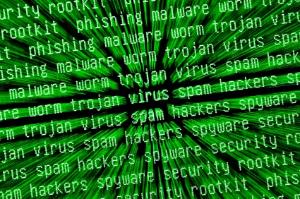
It all started a week ago. National Australia Bank, one of the largest in the country, had a technical malfunction in its core system. Within hours, a simple problem had practically brought a large part of Australia’s banking system to its knees. It was a crazy turn of events.
You see, banks don’t use regular operating systems or database applications; they run specialty software that is intended to synchronize complex operations like cash deposits, overnight interbank drafts, central bank facilities, electronic transfers, credit card monitoring, and a host of sensitive data.
When something goes wrong, it can throw the entire system into disarray, and customers end up getting hurt.
In NAB’s case, a corrupt file overloaded the bank’s payment system, and this single failure eventually cascaded to other parts of their operations.
Much to their surprise and fury, many customers found that their account balances had been blotted out, automatic payments (mortgages, car payments, insurance premiums) had not been drafted, and payment cards no longer functioned.
Because of NAB’s relative size in the country, the bank’s infrastructure handles transactions for many of Australia’s smaller banks, so those banks’ customers were affected too.
This is similar, for example, to how Citi in New York processes international transactions on behalf of many small community banks in
the United States. If something happens to Citi’s technical architecture, all of the other banks are affected.
I met several folks over the weekend who were hit by NAB’s system failure– the stories were generally the same… people with a cart full of groceries at the checkout line unable to pay for their food. Needless to say, the ATMs weren’t working either, and no one would accept checks.
NAB worked feverishly all weekend trying to fix the problem, and locals prepared for a lean couple of days while they waited for access to their cash. Even today (a week later), several thousand NAB accounts are still frozen, and people are unable to withdraw their own money.
It’s unclear yet if the ultimate cause was a pure technical glitch or a malicious attack. Bank IT security systems are far from impenetrable, and the recent StuxNet virus (which can bring down complex infrastructure control systems) shows how sophisticated some electronic attacks are becoming.
Now, I’m not one to live in a state of fear and paranoia for what may or may not happen in the future… but it would be outright foolish to dismiss the possibility that many of the basic systems we take for granted may experience failure.
I’ve seen it before in many parts of the world, including North America and Europe– no fuel at the gas stations, limited food supplies at the grocery store, long-term power outages, etc. NAB’s very public failure demonstrates another important example.
Common sense preparedness is key, and one of the ways to do that is through sovereign diversification. In the case of banking, it’s reasonable to assume that what affects one set of banks in one jurisdiction will likely not affect other banks in other jurisdictions.
Let’s say you’re from Toronto and wake up one morning to find your Canadian bank accounts frozen; if you have some savings stashed away at another bank in Hong Kong, Singapore, or Labuan, then you will still have access to cash, and hence still be able to put food on the table for your family.
It may also be beneficial to keep some amount of hard currency on hand, particularly US dollars, euros, pounds sterling, and Swiss francs in that order. These are the most widely recognized currencies in the world that people are most likely to accept for normal transactions.
Though not yet broadly accepted as media of exchange, gold and silver are also solid additions to an emergency cash hoard. I recommend widely circulated coins over bars– the coins are more recognizable and don’t need to be weighed or assayed.
I also believe in having an escape pad outside of your home country– this is beneficial for many reasons, including the possibility for financial return, being able to move large sums of money overseas, and having a place to go if/when you hit the eject button.